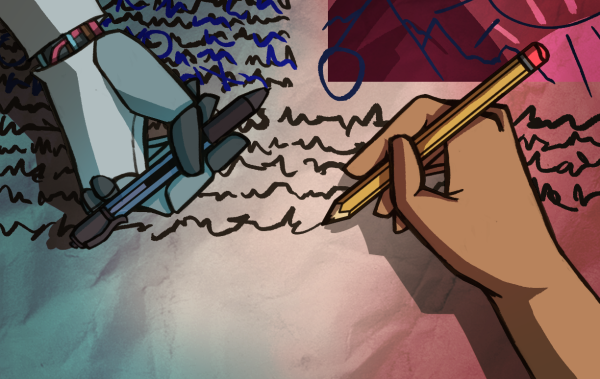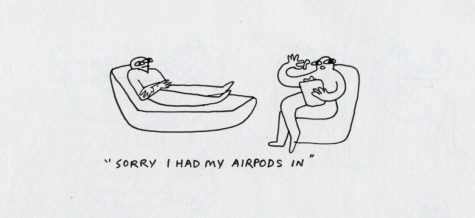In defense of laziness
By winter break, the first wave of symptoms started kicking in: pushing back homework, decreasing performance on tests. By spring break, I was fully diagnosed with senioritis. I began counting down the days until graduation. I tried figuring out which classes I could potentially skip for a day. I stopped studying for tests. I have one goal for the rest of senior year: to not fail and get rescinded.
Now, I’m not promoting seniors to be couch potatoes and truants. As concerning as my recent bout of relaxation and renewal may be to my parents and teachers, senior-year laziness gets a bad rap. In fact, these weeks of relaxation have actually made me a better person. As the stress of college applications has worn away and as I look forward to graduation and the future, not having to care as much about grades has made me a happier person and has allowed me to focus on my passions that were previously pushed to the back burner. For the past four years, I had been quarantined in my room with my head buried in textbooks, studying until I forgot whether it was morning or night. I have spent the last few formative years of my life concerned about numbers, acceptances and rejections without any concern about my own or others’ happiness and wellbeing. Now that high school is coming to a close, I have become not just more self-aware, but more in tune with my friends and family.
The pressure cooker atmosphere at Lowell makes it so that students don’t see the difference between completely failing your classes and taking a more relaxed approach to academics.
In fact, my attitude towards grades and scores now is what it should have been during my earlier high school years. I no longer get disappointed in myself for getting a B on a quiz and dwell on it for the next few days. The pressure cooker atmosphere at Lowell makes it so that students don’t see the difference between completely failing your classes and taking a more relaxed approach to academics. What students, teachers and parents need to understand is that the diminishing stress has allowed me to enjoy my last few months of being a kid before adulthood. After all, isn’t making mistakes, having fun and learning for enjoyment also part of one’s teenage years? Us seniors have a finite amount of time before we have to say goodbye to our families and face adulthood. Why shouldn’t we be able to enjoy these few months we have left before burying our faces in textbooks for another four years?
While I have spent a lot more time watching reruns of “The Office,” I have also been able to do productive, social activities to make up for the times when I have had to stay home studying. I can go to restaurants on weeknights with my family without worrying about not having enough time to finish homework, and I finally have the opportunity to start reading books that I bought last summer.
Seniors don’t necessarily just fall into a vegetative state once second semester hits. I know plenty of seniors who continue to do productive activities, and they have even more time to pursue their interests. I have friends doing internships at political offices, working at museums, and volunteering at tutoring centers.
When I was in the throes of applying to college, adults would tell me to relax, not to stress out over grades and to get more sleep. But the moment I started to loosen the reins on academics, a blaring red alarm went off in my head. Although my senioritis is putting me in a less academic mindset, it’s just a side effect of having studied for hours everyday for four years. If we want to prevent the effects of this illness from getting too strong, we need to start seeing students not as factory machines, but rather as humans who have the capability of working hard, but who sometimes need to take a break once in a while as well.













